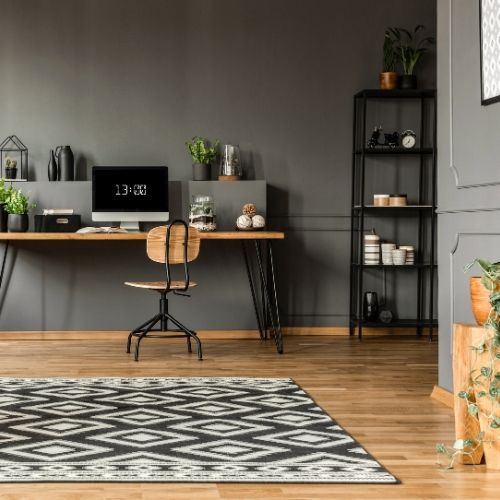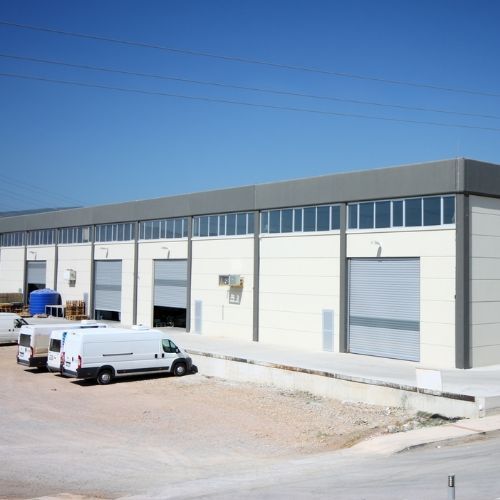November 2023 Newsletter
November 2023 Newsletter

Turn your Hobby into a Business
Did you know that many successful small businesses start out as hobbies and side-hustles? It's true! From selling hand-made crafts, guided fishing tours, or breeding rare kinds of snakes, hobbies of all kinds have the potential to make money. While working in the garage on your boat, knitting the perfect scarf, or building furniture out of reclaimed wood, have you ever thought about turning your hobby into a business? The line between pursuing a hobby and operating a legitimate business can sometimes be blurry. Understanding how the IRS views the differences between a hobby and a business is crucial to ensure accurate tax reporting and compliance.
Let's delve into the key factors that the IRS considers when distinguishing between the two.
Profit Motive: The primary factor that the IRS assesses when determining whether an activity is a hobby or a business is the presence of a profit motive. A business is typically driven by the intention to generate a profit, while a hobby is pursued primarily for personal satisfaction. If an activity is consistently conducted with the aim of making a profit, it is more likely to be classified as a business by the IRS.
Frequency and Regularity: Engaging in an activity on a consistent basis and with a regular schedule suggests a business-like approach. On the other hand, sporadic and infrequent involvement points more towards a hobby.
Expertise and Professionalism: If you maintain a high degree of skill and continually seek to improve your craft, it suggests a commitment to running a business. Conversely, a lack of formal training or a more casual approach may lean towards the hobby classification.
Investment of Time and Effort: A significant investment of time, energy, and resources is indicative of a business endeavor. Conversely, if you allocate only limited hours and view the activity as a leisure pursuit, it aligns more closely with a hobby.
History of Profit and Loss: A history of generating consistent profits over several years is a strong indicator of a business. Conversely, if the venture has consistently operated at a loss and lacks a clear strategy for improvement, it may be classified as a hobby.
Intent to Make a Profit: Your ability to demonstrate a legitimate intent to make a profit is essential. This can include maintaining a detailed business plan, seeking professional advice, and implementing strategies to enhance profitability. Documenting your efforts to generate income showcases a commitment to operating a bona fide business.
Interested in converting your hobby to a business? We'd love to help!
Reinvest in Your Business
The end of the year is an important time for small business owners. It's not just about holiday festivities and closing the books, but also an opportune moment to make strategic decisions that can significantly impact your financial bottom line. One such strategy that can pay off both in terms of business growth and tax benefits is reinvesting your profits into the company. Below, we'll explore how reinvesting profits into your small business can be a tax-efficient and financially savvy move.
Before diving into the tax benefits of profit reinvestment, let's clarify what it means to reinvest profits. Essentially, it involves taking a portion of your business earnings and putting them back into the company rather than distributing them to yourself as dividends or owner's draw.
Here are some ways small businesses can reinvest profits:
- Investing in Expansion: This could include opening a new location, increasing your product or service offerings, or expanding your existing operations.
- Upgrading Equipment and Technology: Updating your machinery, technology, or infrastructure can enhance productivity and competitiveness.
- Hiring and Employee Development: Expanding your team or investing in employee training can lead to increased productivity and growth.
- Marketing and Advertising: Boosting your marketing efforts can help you attract new customers and retain existing ones.
- Research and Development: For businesses in innovation-driven industries, investing in R&D can lead to new products or services and improved market positioning.
The Tax Advantages
Reinvesting your profits can offer several tax advantages for small business owners:
- Deferred Taxes: By reinvesting profits, you're postponing the distribution of income to yourself. This, in turn, defers the tax liability associated with that income until you eventually do take it out.
- Deductible Business Expenses: Many expenses related to expansion, upgrades, and development can be deducted as business expenses, reducing your taxable income.
- Depreciation and Amortization: When you invest in assets like equipment, you can often depreciate or amortize these costs over time, which lowers your taxable income each year.
- Lower Taxable Income: A lower taxable income can result in a reduced tax liability, which means more money stays within the business to support growth and operations.
- Tax Credits: Depending on your business activities, you might be eligible for certain tax credits, such as research and development credits, that can further reduce your tax bill.
- Economic Growth: Supporting your business's growth can lead to increased profitability in the long run, which can also have positive tax implications.
Key Considerations
While reinvesting profits can be a tax-efficient strategy, it's essential to keep a few things in mind:
- Consult a Tax Professional: Tax laws can be complex, and they change over time. Consult with a tax professional or accountant to ensure you're making the right decisions for your specific circumstances.
- Balancing Act: Be mindful of finding the right balance between reinvestment and personal income to cover living expenses and financial stability.
- Business Plan: Develop a solid business plan for how you'll reinvest the profits and track the outcomes to ensure your investments are yielding the expected returns.
Reinvesting your profits into your small business at year-end can be a win-win strategy, providing both financial growth and tax benefits. Not only can it help your business expand and thrive, but it can also be a smart way to manage your tax liability. As you consider this strategy, be sure to work closely with a tax professional to maximize the advantages while complying with tax regulations. By doing so, you can set your small business on a path of sustainable growth and financial success.
Contact our office to discuss these and other tax saving strategies.
Every month we put the spotlight on another local business.
This month we're featuring:
Pam & Brenda with Lilac Boutique
Lilac Boutique is a quaint little shop in Champlin, MN. We carry a variety of gift items, women’s clothing (sizes small – 3X), and women’s accessories. You can find our storefront at 11350 Aquila Drive, which is open Thursday – Sunday, or visit our website www.lilac.boutique.
We are just two sisters with one big dream!! We both continue to work full-time in downtown Minneapolis as we pursue our dream of shopping for others. Our goal is to make everyone who visits our shop feel welcomed and beautiful!!
Quick Links
Contact Information
Business Hours
- Mon - Fri
- -
- Sat - Sun
- Closed















